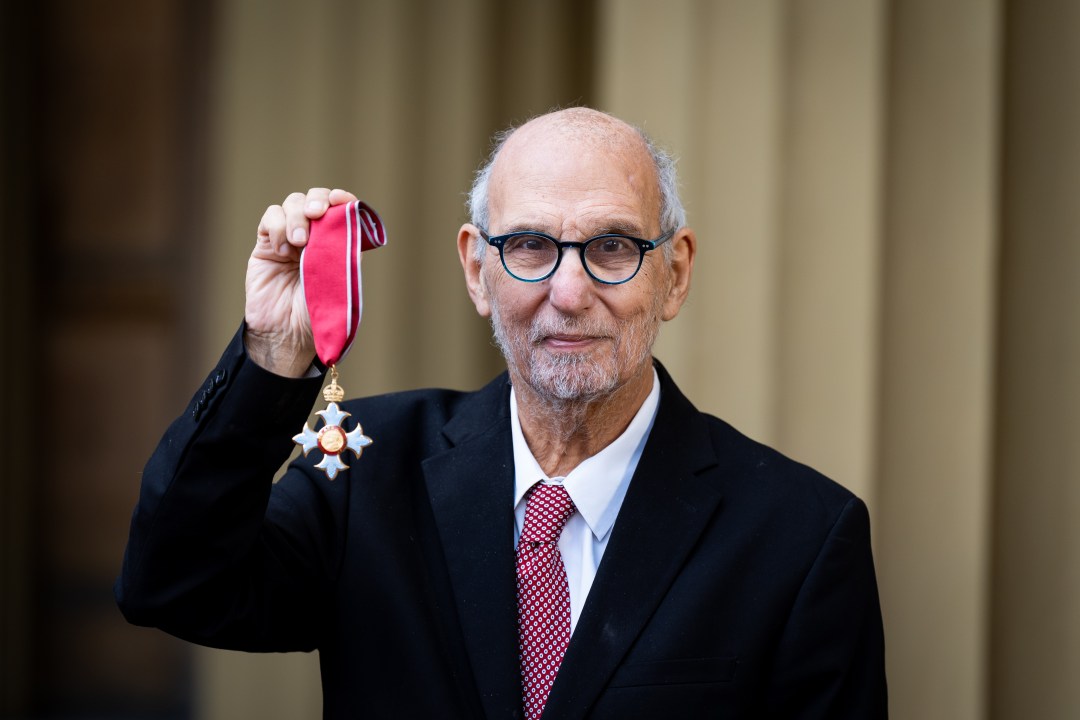In the excellent BBC comedy series W1A, which poked a harsher degree of fun at its makers than many would have believed credible, there is one especially amusing throwaway gag. The hapless Ian Fletcher (Hugh Bonneville) is taken on a tour of Broadcasting House, and briefly veers into a meeting room, where, to his surprise, he sees Salman Rushdie and Alan Yentob engaged in a game of arm wrestling. Both men look up at him in pained surprise, and a baffled Fletcher makes his excuses and leaves.
I was reminded of this moment yesterday when the news broke of Yentob’s death, at the age of 78. My initial response was to think predominantly of the broadcaster’s significant, even overwhelming self-regard and preening. There have been few figures in public life more associated with both name-dropping ( ‘Salman’ was probably the least of it) and putting themselves front and centre when it came to the programmes that he was responsible for.
Had Dickens and Trollope lived in the age of television, they would have longed to create Yentob
This reached a nadir in 2007 with the so-called ‘Noddygate’ scandal, in which shots of Yentob nodding gravely and looking serious were cut and pasted into Imagine interviews that he did not conduct. A lesser man would have been fired by the BBC for this transgression, but such was Yentob’s standing within the corporation that he was given the mildest of chastisements and allowed to remain within his well-remunerated post as the corporation’s ‘creative director’.
By way of a quasi-apology, Yentob told the Guardian (naturally) that ‘Because I make arts programmes and we’re always using cutaways or something. I knew I wouldn’t have done it routinely and I assumed people would understand – particularly because the films I’ve done have been quite narrative, quite playful . . . programmes are constructed and made and I didn’t think anyone would challenge me about that.’ In other words, if you’re watching an Alan Yentob show, you expect to see him on screen, and you’d be disappointed if you didn’t.
Throughout a career that spanned the best part of six decades, this largely held true. Yentob had his first conspicuous success with the David Bowie documentary, Cracked Actor, which still remains one of the most insightful and candid examinations of that most mercurial and enigmatic of musicians. And thereafter, he blurred the line between behind-the-scenes impresario and front-of-camera star. Not for nothing was he a running joke in the Adrian Mole books, or allowed to make self-parodying cameos as himself in everything from French and Saunders to Diane Morgan’s recent sitcom Mandy. The man who Private Eye called ‘Botney’ – not without a certain grudging affection – came to define the BBC for decades, in all its metropolitan, Armani-suited, Perrier-drinking aspects, and we shall be the poorer for his passing.
The reason why Yentob, for all his absurd grandiosity and preening, should be missed – his failures, which include his patronage of Kids Company and attempts to block the Savile enquiry notwithstanding – is because he was a flamboyant, larger-than-life character who consistently gave good copy and added to the gaiety of the nation. Had Dickens and Trollope lived in the age of television, they would have longed to create Yentob, who came from a family of Iraqi Jews and became the definition of Blairite Britain. He was a shamelessly ambitious, hugely talented and hilariously vain figure who should, by rights, have been a potentate in some ancient country, born aloft by slaves and consistently surrounded by sycophants and acolytes. Instead, he had Soho House and the Electric, which had to do in their stead.
The reason why even those who would rather sever their body parts than watch Yentob on screen should venerate his considerable legacy is because there will never be anyone like him again. The Amol Rajans of this world are simply too small – literally and figuratively – to live up to his buccaneering, enjoyably absurd charisma.
Yentob understood that the role of a broadcasting legend was to become even bigger than the programmes that he championed, and if he never quite became the star that he so clearly believed he was (he should have gone to the United States for that), he was the last of a breed of showmen who have been replaced by box-tickers and bean-counters. We shall not see his swashbuckling like again, and that ultimately is a tragedy for the BBC and its viewers alike.








Comments